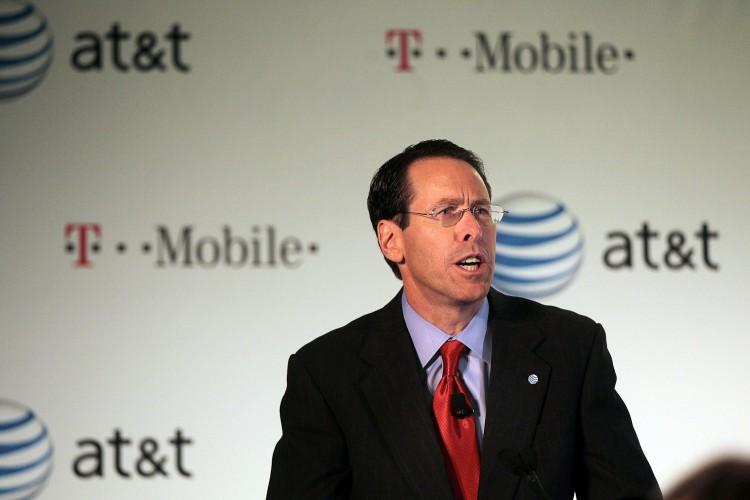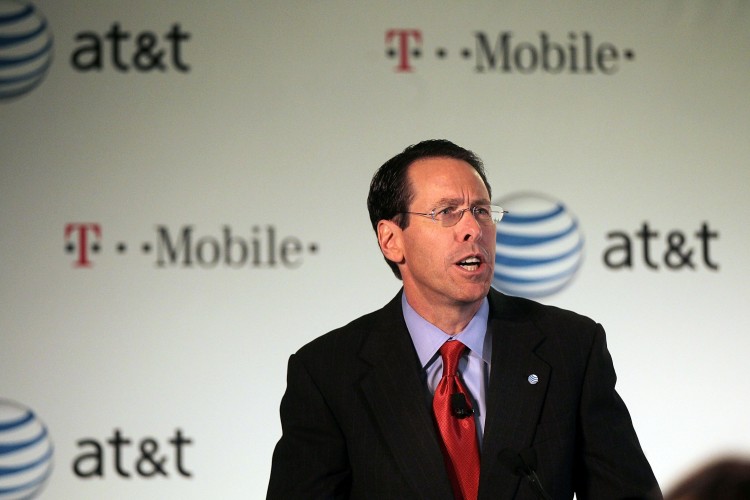NEW YORK—Telecommunications giant AT&T Inc. pulled the plug on its proposed $39 billion T-Mobile USA takeover bid Monday after failing to convince federal regulators of antitrust concerns.
The Dallas-based AT&T said that it would take a pretax charge of $4 billion in breakup fees and other assets it must pay T-Mobile’s parent company, Germany’s Deutsche Telekom AG.
The acquisition, had it been approved, would have created the nation’s biggest wireless carrier, eclipsing current leader Verizon Wireless. AT&T claimed that with T-Mobile’s spectrum assets and other resources, it would speed adoption of 4G wireless, broaden the company’s reach, and create more U.S. jobs.
“Adding capacity to meet these needs will require policymakers to do two things,” said AT&T CEO Randall Stephenson in a statement. “First, in the near term, they should allow the free markets to work so that additional spectrum is available to meet the immediate needs of the U.S. wireless industry, including expeditiously approving our acquisition of unused Qualcomm spectrum currently pending before the FCC. Second, policymakers should enact legislation to meet our nation’s longer-term spectrum needs.”
However, the U.S. Department of Justice in August sued to block the deal, arguing that AT&T’s premises were unsound. Both the Justice Department and the Federal Communications Commission said that the deal, if approved, would lesson competition and lead to massive job cuts. In addition, getting rid of T-Mobile—a value player in the market—would leave a void in the market and harm consumers.
The failed deal leaves T-Mobile at a disadvantage. As the smallest of the major U.S. wireless carriers, the company still does not have a 4G rollout plan. Analysts argue that this would leave Deutsche Telekom with no choice but to spin off the company into an independent, or seek another merger with a different company.
One analyst on Monday suggested that Sprint may be a suitor, although the companies do not share similar wireless technologies. Nevertheless, a deal with Sprint could get regulator approval due to its smaller size.






